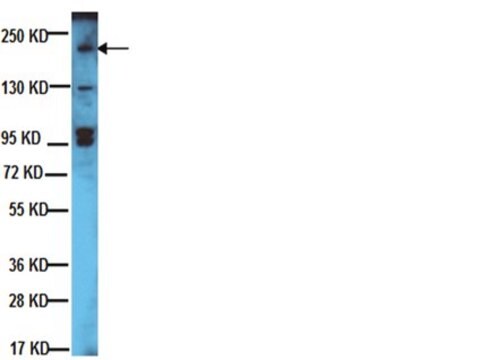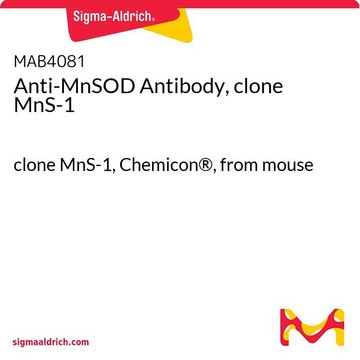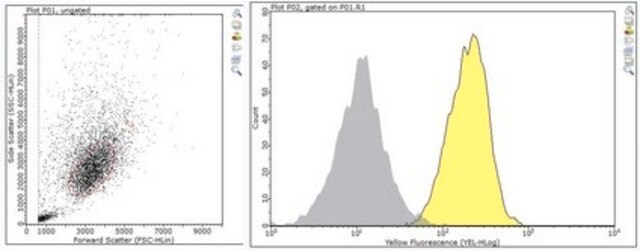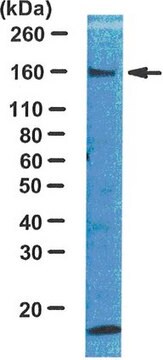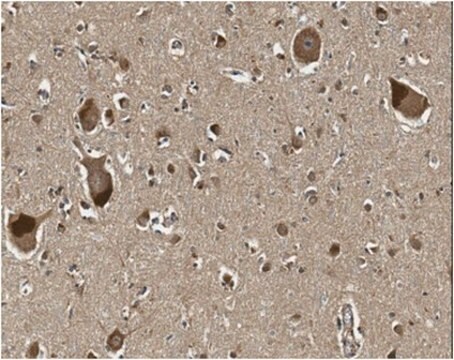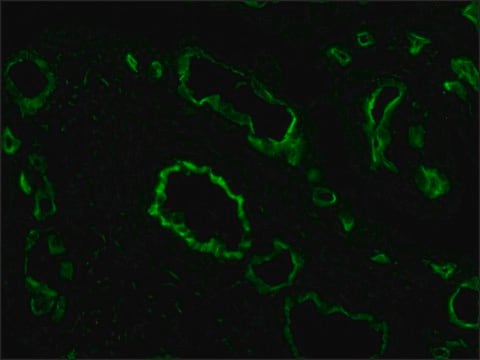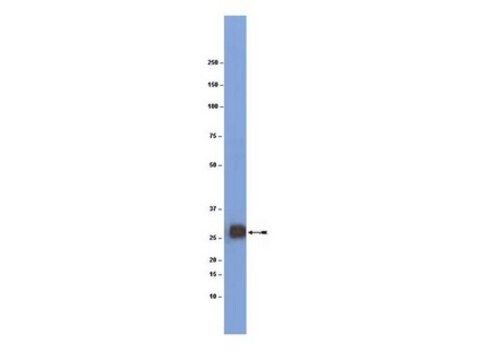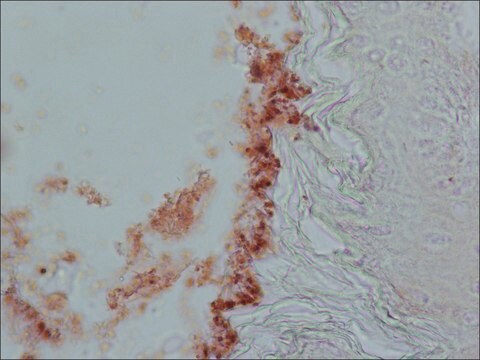05-390
Anti-erbB-3/HER-3 Antibody, clone 2F12
clone 2F12, Upstate®, from mouse
Synonym(s):
Tyrosine kinase-type cell surface receptor HER3, lethal congenital contracture syndrome 2, v-erb-b2 avian erythroblastic leukemia viral oncogene homolog 3, v-erb-b2 erythroblastic leukemia viral oncogene homolog 3 (avian)
About This Item
Recommended Products
biological source
mouse
Quality Level
antibody form
purified antibody
antibody product type
primary antibodies
clone
2F12, monoclonal
species reactivity
human, bovine, mouse, rat
manufacturer/tradename
Upstate®
technique(s)
immunocytochemistry: suitable
immunohistochemistry: suitable
immunoprecipitation (IP): suitable
western blot: suitable
isotype
IgG2aκ
NCBI accession no.
UniProt accession no.
shipped in
wet ice
target post-translational modification
unmodified
Gene Information
human ... ERBB3(2065)
General description
Specificity
Immunogen
Application
4 µg of a previous lot of this antibody immunoprecipitated erbB-3/HER-3 from human MDA and MCF-7 RIPA lysates.
Immunocytochemistry:
10 µg/mL of a previous lot of this antibody gave positive immunostaining for erbB-3/HER-3 in MCF-7cells fixed with 95% ethanol/5% acetic acid.
Immunohistochemistry:
1:50 and 1:100 dilution of a previous lot detected erbB-3/HER-3 membrane staining in human normal and carcinoma breast tissue.
Signaling
Growth Factors & Receptors
Quality
Western Blot Analysis:
0.1-2 µg/mL of this lot detected erbB-3/HER-3 in RIPA lysates of human MCF-7 cells. Previous lots have detected erbB-3/HER-3 in MDA RIPA lysates.
Target description
Physical form
Storage and Stability
Handling Recommendations:
Upon receipt, and prior to removing the cap, centrifuge the vial and gently mix the solution. Aliquot into microcentrifuge tubes and store at -20°C. Avoid repeated freeze/thaw cycles, which may damage IgG and affect product performance.
Analysis Note
Human breast adenocarcinoma (well-differentiated), mouse brain lysate, MCF-7 cell lysate.
Other Notes
Legal Information
Disclaimer
Not finding the right product?
Try our Product Selector Tool.
recommended
Storage Class Code
12 - Non Combustible Liquids
WGK
WGK 2
Flash Point(F)
Not applicable
Flash Point(C)
Not applicable
Certificates of Analysis (COA)
Search for Certificates of Analysis (COA) by entering the products Lot/Batch Number. Lot and Batch Numbers can be found on a product’s label following the words ‘Lot’ or ‘Batch’.
Already Own This Product?
Find documentation for the products that you have recently purchased in the Document Library.
Our team of scientists has experience in all areas of research including Life Science, Material Science, Chemical Synthesis, Chromatography, Analytical and many others.
Contact Technical Service